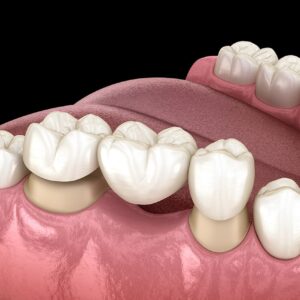In recent years, the popularity of Ozempic injection has surged as a promising treatment for managing type 2 diabetes and supporting weight loss efforts. Its effectiveness in helping individuals achieve better health outcomes has made it a well-known name in the medical community and among patients. However, as with any medical treatment, concerns and questions inevitably arise about potential side effects and long-term impacts. One such question that has gained attention is whether Ozempic Abu Dhabi or its counterparts are linked to hair loss.
Understanding the connection between Ozempic and hair health is crucial for those considering or already using this medication. This blog aims to provide comprehensive information about this topic, addressing common concerns, scientific insights, and practical considerations.
What Is Ozempic and How Does It Work?
Overview of Ozempic
Ozempic is a brand name for semaglutide, a medication designed to regulate blood sugar levels in individuals with type 2 diabetes. It belongs to a class of drugs called GLP-1 receptor agonists, which mimic the effects of a naturally occurring hormone that stimulates insulin production, suppresses appetite, and promotes weight loss.
Its Role in Weight Management
Beyond its primary use for diabetes control, Ozempic has gained recognition for its effectiveness in supporting weight loss by reducing hunger and increasing feelings of fullness. This dual benefit has made it a popular choice among individuals seeking to improve metabolic health.
Common Side Effects of Ozempic
Typical Reactions
Most patients experience mild to moderate side effects, including nausea, vomiting, diarrhea, and abdominal discomfort. These symptoms often subside over time as the body adjusts to the medication.
Less Common Reactions
Less frequently, individuals may experience reactions such as pancreatitis, kidney issues, or allergic responses. It’s important for users to monitor their health and communicate with healthcare providers about any unusual symptoms.
Exploring the Link Between Ozempic and Hair Loss
Is Hair Loss a Recognized Side Effect?
Currently, hair loss is not officially listed as a common or direct side effect of Ozempic. Clinical trials and post-marketing reports have not established a definitive connection between semaglutide use and hair thinning or baldness.
Scientific Evidence and Research
Research into the side effects of GLP-1 receptor agonists like Ozempic has primarily focused on metabolic and gastrointestinal effects. There is limited scientific data explicitly linking Ozempic to hair loss. However, some individuals have reported hair shedding during their treatment course, prompting further discussion.
Potential Indirect Factors
While direct causation remains unproven, several indirect factors may contribute to hair changes in some users:
- Hormonal Fluctuations: Weight loss and metabolic shifts can influence hormone levels, potentially affecting hair growth cycles.
- Nutritional Deficiencies: Changes in diet or rapid weight loss might lead to deficiencies in essential nutrients vital for hair health.
- Stress and Lifestyle: The psychological and physical stress associated with managing chronic conditions can impact hair growth.
Is Hair Loss a Common Experience?
Hair loss is generally considered a rare or uncommon experience among Ozempic users. If hair thinning occurs, it may be due to other underlying causes or individual responses rather than the medication itself.
Factors That Might Influence Hair Health During Treatment
Nutritional Status
Adequate nutrition plays a crucial role in maintaining healthy hair. Deficiencies in iron, biotin, zinc, or protein can lead to hair thinning. During weight loss or illness, nutritional intake should be carefully monitored.
Stress and Psychological Factors
Managing a chronic condition like diabetes can be stressful, and stress is a known factor that can trigger hair loss. Emotional well-being should be prioritized alongside physical health.
Underlying Medical Conditions
Certain health issues, such as thyroid disorders or autoimmune diseases, can contribute to hair loss. Proper diagnosis and management of these conditions are essential.
Medication Interactions
If a person is taking multiple medications, interactions might influence hair health. Always consult healthcare providers about all treatments being used.
Practical Tips for Maintaining Hair Health While Using Ozempic
Balanced Nutrition
Ensure a diet rich in essential vitamins and minerals that support hair growth. Incorporate foods high in biotin, iron, zinc, and omega-3 fatty acids.
Regular Monitoring
Keep track of any changes in hair density or scalp health. Early detection can facilitate timely intervention if needed.
Stress Management
Engage in relaxation techniques such as meditation, yoga, or regular exercise to reduce stress levels.
Medical Consultation
Discuss any concerns about hair loss with healthcare professionals. They can evaluate contributing factors and suggest appropriate solutions.
Conclusion
While Ozempic Abu Dhabi and similar formulations are not officially associated with hair loss as a common side effect, individual experiences may vary. The potential for hair changes may be influenced by several factors, including nutritional status, hormonal balance, and overall health. If you notice significant hair shedding during treatment, consult with your healthcare provider to explore the underlying causes and appropriate steps to support your hair health.
Understanding the full scope of Ozempic’s effects is essential for making informed decisions about your health. As with any medication, personalized medical advice and regular follow-ups are key to achieving the best outcomes.
FAQs
1. Can Ozempic cause hair thinning?
Currently, there is no conclusive scientific evidence that directly links Ozempic to hair thinning. Any hair changes experienced may be due to other factors such as nutritional deficiencies or hormonal fluctuations.
2. What should I do if I experience hair loss while using Ozempic?
If you notice significant hair loss, consult your healthcare provider. They can assess potential causes, review your overall health, and recommend appropriate measures to support hair health.
3. Are there any known interactions between Ozempic and hair health supplements?
There are no well-documented interactions between Ozempic and common hair health supplements. However, always inform your healthcare provider about any supplements you are taking.
4. Is hair loss reversible after stopping Ozempic?
Since hair loss is not strongly linked to Ozempic, stopping the medication may not necessarily reverse hair thinning if it is caused by other factors. Addressing underlying causes and maintaining proper nutrition are vital for hair recovery.






